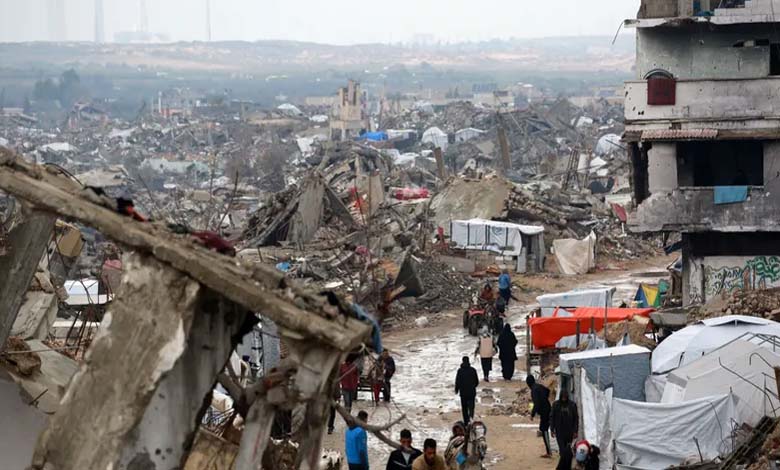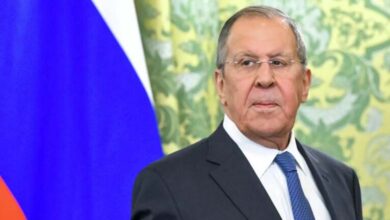Gaza’s Humanitarian Crisis Shifts Western Diplomacy Toward Recognizing Palestine

The positions of France, the UK, and Canada mark an international shift that makes it increasingly difficult for Israel to ignore Palestinian demands.
When Spain, Ireland, and Norway announced in May 2024 that they would recognize a Palestinian state, Israel’s closest allies dismissed the move as ineffective in resolving the Gaza crisis.
-
Gaza Truce: U.S. Positive Signal, Israeli Flexibility and a U.N. Alarm
-
Gaza: 20 Dead in Stampede for Aid in Khan Younis
Although France, the UK, and Canada affirmed support for a two-state solution with recognized borders, they hesitated to take the recognition step. They feared it would be perceived as a reward to Hamas and were concerned it could harm relations with Israel and Washington or squander diplomatic leverage.
At the time, French President Emmanuel Macron stated: “My recognition [of Palestine] is not an emotional decision.”
But as Israeli restrictions on humanitarian aid worsened the Gaza crisis and a two-month ceasefire collapsed in March, serious talks began. By mid-year, three major G7 economies were preparing to recognize a Palestinian state by September.
-
Buffer zone or bargaining chip? What you need to know about Gaza’s new Magin Oz corridor
-
Gaza Truce: Israel Loosens Its Red Lines and Steps Back on Morag Corridor
Canadian Prime Minister Mark Carney said Thursday, “The prospect of a two-state solution is vanishing before our eyes… That’s one of the reasons we’ve reached this point — to try and reverse that trend alongside our partners.”
France and Saudi Arabia proposed a joint plan: encourage more Western countries to recognize Palestine in return for Arab nations taking a firmer stance toward Hamas.
They hoped to secure backing at a scheduled UN conference in June, but Israeli airstrikes on Iran and heavy U.S. diplomatic pressure delayed the meeting.
-
Bloody Morning in Gaza: 31 Killed in Israeli Strikes Including Women and Children
-
Stalled Gaza Truce Talks… The Israeli Withdrawal Map Sparks Fresh Tensions
The strikes silenced public criticism of Israel from Western allies and made it harder to rally Arab support. However, behind-the-scenes discussions continued. A Canadian source revealed that Macron, Carney, and British Prime Minister Keir Starmer maintained regular contact via calls and texts throughout June and July.
Canada was reluctant to act alone; the UK wanted maximum impact. Macron took a bolder approach. Growing global concern over images of starving children and fears that Israeli military action in Gaza — along with settler violence in the West Bank — was undermining the prospects of a sovereign Palestinian state added to the urgency.
On July 24, Macron unexpectedly announced that France would recognize Palestine during the UN General Assembly in September.
-
Gaza Ceasefire Deal: Internal and Regional Pressures Shape the Limits of the Agreement
-
2 Million Palestinians in 15% of Gaza’s Area… 36,000 People per Square Kilometer
Neither the UK nor Canada followed immediately. However, U.S. President Donald Trump’s muted reaction — saying Macron’s move had “no effect” but still calling him “a great guy” — reassured others that the diplomatic fallout might be manageable.
Two days later, Macron spoke with Starmer and German Chancellor Friedrich Merz to discuss a “sustainable path toward a two-state solution,” just ahead of Starmer’s meeting with Trump in Scotland.
While Starmer didn’t publicly mention recognition, he emphasized the need for more humanitarian aid to Gaza. Trump continued to criticize such moves as “a reward for Hamas.”
-
Palestinian political analyst: Gaza’s humanitarian situation is catastrophic and international pressure falls short of addressing the crisis
-
Latest Gaza News: Death Creeps Westward, Israel Issues Warning to Residents of 18 Areas
While Trump was still in the UK on Tuesday inaugurating a golf course, Starmer recalled his government from summer recess to approve the recognition plan. The UK will recognize the Palestinian state in September unless a ceasefire and a durable peace framework from Israel emerge.
Like Macron, Starmer informed Carney just hours in advance. Canada, seeing France and the UK move, felt compelled to follow.
Six days after Macron’s announcement, Carney said, “International cooperation is essential to securing lasting peace and stability in the Middle East. Canada will do everything it can to help lead that effort.”
-
Gaza Latest: 31 Killed by Israeli Fire Near Aid Center
-
Gaza Latest: Evacuation Orders in the North and Humanitarian Ship Intercepted at Sea
The step changes little on the ground. U.S. Secretary of State Marco Rubio dismissed the recognition as “out of context.” Other key G7 members — Germany, Italy, Japan — have shown no signs of joining the initiative.
Over three-quarters of the UN General Assembly’s 193 members already recognize an independent Palestinian state. Yet U.S. veto power in the Security Council prevents Palestine from gaining full UN membership.
Still, Richard Gowan, UN director at the International Crisis Group, said the declarations matter: “They show that some of America’s key allies are aligning with the global South majority on Palestine at the UN.”
He added, “This makes it harder for Israel to dismiss the pro-recognition camp as irrelevant.”












